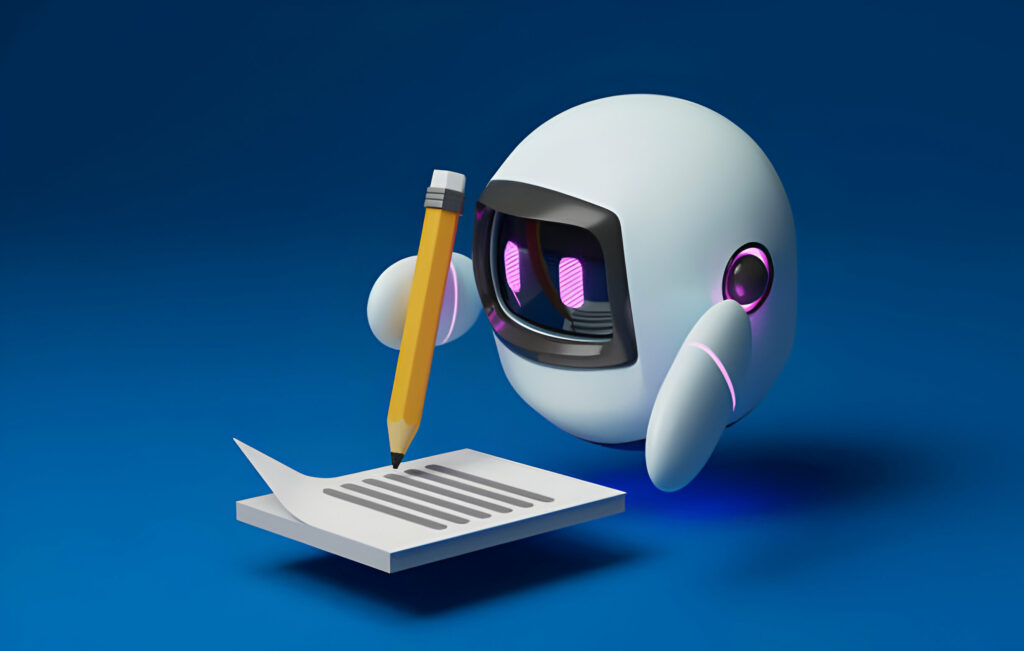Will AI replace Content Writers, Pros and Cons Of AI for Content Writing
AI and Content Writing: The Future of Creativity

Photo by emerson23work on Pixabay
In the ever-evolving landscape of content creation, artificial intelligence (AI) has emerged as a powerful tool that is revolutionizing the way we write and consume content. From automated content generation to natural language processing, AI is transforming the future of content writing. In this comprehensive guide, we will explore the impact of AI on content creation, its benefits and drawbacks, and the role of human writers in an AI-driven world.
The Rise of AI Content Writers

AI content writers, also known as natural language generation (NLG) tools, are advanced software programs that use artificial intelligence and machine learning algorithms to create human-like written content. These tools have gained significant attention in recent years due to their ability to generate content that is coherent, informative, and often indistinguishable from content written by human authors.
Understanding the Capabilities of AI Content Writers
AI content writers offer numerous capabilities that make them invaluable in the content creation process:
- Efficiency: AI content writers can produce content at an impressive speed, generating articles, blog posts, product descriptions, and more in a matter of minutes. This frees up human writers to focus on more creative and strategic tasks.
- Consistency: AI ensures a consistent tone and style across all content pieces. This is particularly valuable for brands and businesses aiming to maintain a uniform voice throughout their digital presence.
- Data-Driven Content: AI can analyze vast amounts of data to generate data-driven content, such as financial reports, market analyses, and personalized product recommendations.
- Multilingual Content: AI content writers can easily translate content into multiple languages, expanding the reach of your content to a global audience.
- Content Optimization: AI can optimize content for search engines (SEO) by incorporating relevant keywords and ensuring proper formatting.
The Pros and Cons of AI for Content Writing

As with any technology, AI has its advantages and disadvantages when it comes to content writing. Let’s explore the pros and cons in detail:
Benefits of AI for Content Writing
- Increased Efficiency: AI content writers can generate content at a remarkable speed, significantly reducing the time and effort required for content creation.
- Enhanced Consistency: AI ensures a consistent tone and style across all content pieces, maintaining brand identity and improving the overall user experience.
- Data-Driven Insights: AI can analyze vast amounts of data to generate data-driven content, providing valuable insights and recommendations for content creators.
- Multilingual Capabilities: AI content writers can easily translate content into multiple languages, allowing businesses to reach a broader audience.
- Improved Content Optimization: AI can optimize content for search engines by incorporating relevant keywords and ensuring proper formatting, enhancing the visibility and discoverability of content.
Drawbacks of AI for Content Writing
- Lack of Creativity: AI is not yet capable of replicating the creativity and originality that human writers bring to content creation. It may struggle to produce unique and innovative content.
- Limited Contextual Understanding: While AI can generate coherent content, it may lack a deep understanding of context, making it challenging to produce content that resonates with specific audiences or industries.
- Ethical Concerns: The use of AI-generated content raises ethical concerns, particularly if it is used to deceive or manipulate readers. It is essential to ensure transparency and maintain ethical standards in content creation.
- Dependency on Data: AI heavily relies on data for content generation. If the data provided is biased or limited, it may impact the quality and accuracy of the generated content.
- Human Oversight: Despite the capabilities of AI, human oversight is crucial in content creation. Human writers bring creativity, emotion, and nuanced understanding to the process, ensuring the content aligns with brand values and resonates with the target audience.
The Role of Human Writers in an AI-Driven World
While AI content writers offer numerous benefits, human writers still play a vital role in an AI-driven world. Human writers possess unique qualities that are difficult to replicate through algorithms alone:
- Creativity and Originality: Human writers bring a level of creativity, originality, and storytelling ability that is challenging to replicate through AI. Their unique perspectives and voice help differentiate content and engage readers.
- Contextual Understanding: Human writers possess a deep understanding of context, enabling them to produce content that resonates with specific audiences and industries. They can inject personality and tailor content to meet the needs of the target audience.
- Oversight and Optimization: Human writers provide essential oversight in the content creation process. They ensure the accuracy, quality, and alignment of content with brand values. Human writers also analyze data and feedback to optimize content and improve future iterations.
- Ethical Considerations: Human writers play a crucial role in ensuring ethical content creation. They uphold transparency, maintain ethical standards, and ensure that AI-generated content is used responsibly and in line with legal and ethical guidelines.
In an AI-driven world, the most successful content strategies involve a harmonious collaboration between human writers and AI tools. Human creativity, emotion, and expertise combined with AI’s efficiency and data-driven capabilities result in exceptional content that resonates with audiences.
The Future of AI and Content Writing
As AI technology continues to advance, the future holds exciting possibilities for AI and content writing. Here are some potential developments to watch:
- Advanced Natural Language Processing: AI content writers will become increasingly adept at understanding context, generating creative content, and mimicking the unique voices of individual authors.
- Enhanced Personalization: AI will play a crucial role in creating personalized content for each user. Tailored recommendations, email marketing campaigns, and user-specific content will become more prevalent.
- Improved Contextual Understanding: AI will continue to evolve, improving its ability to understand context and produce content that resonates with specific industries, cultures, and audiences.
- Ethical Guidelines and Standards: As AI-generated content becomes more prevalent, the establishment of ethical guidelines and standards will be crucial. This will ensure responsible use of AI in content creation and maintain transparency with readers.
- Collaboration and Integration: AI will become an essential part of the content creation process, seamlessly integrating with human writers, content management systems, and other tools to optimize efficiency and quality.
The future promises exciting developments in the field of AI and content writing. Embracing this technology can lead to enhanced content strategies, improved user experiences, and increased efficiency. However, it is crucial to strike a balance between automation and human creativity to unlock the full potential of AI content writers.
Conclusion
AI content writers have emerged as a game-changer in the world of content creation. Their efficiency, consistency, and data-driven capabilities offer numerous benefits for businesses and content creators. However, human writers still play a vital role in an AI-driven world, bringing creativity, context, and ethical oversight to the content creation process. The future holds exciting possibilities for AI and content writing, and finding the right balance between automation and human creativity will be key to unlocking its full potential. As technology continues to advance, the collaboration between human writers and AI tools will shape the future of content creation, ensuring exceptional and engaging content for audiences worldwide.



